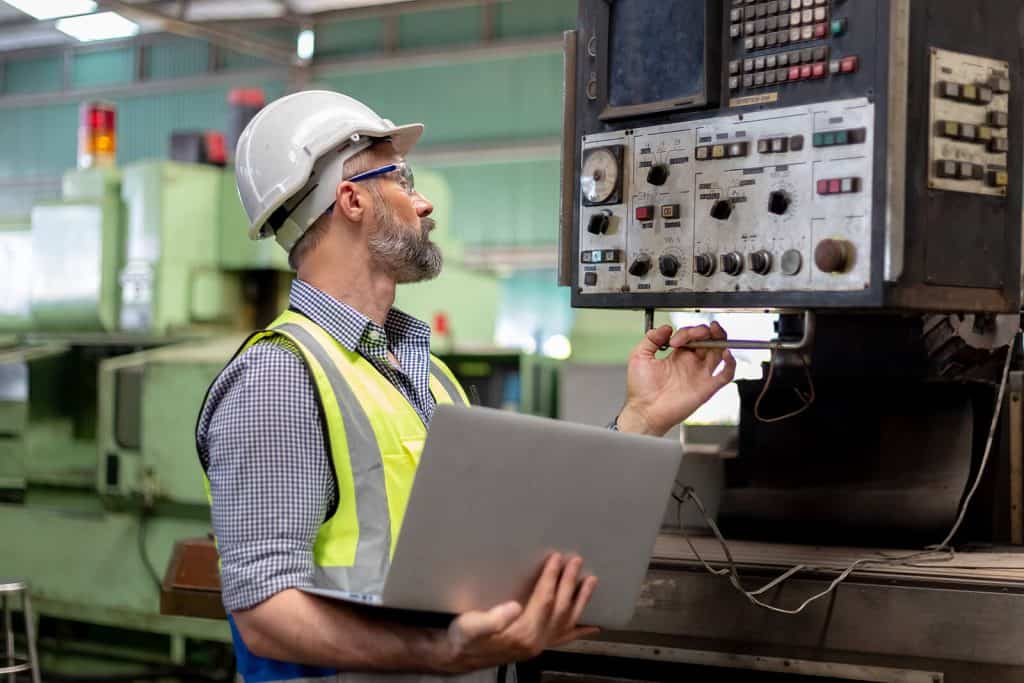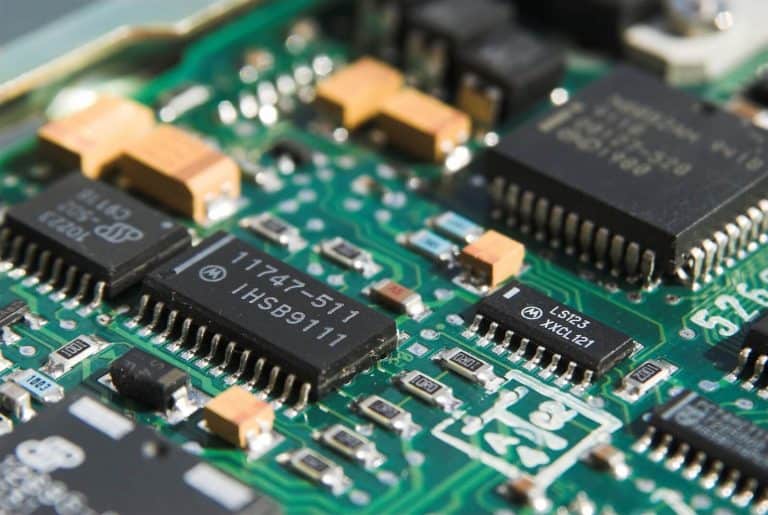What is Maintenance Management?
Effective maintenance management is crucial for ensuring a production system’s smooth operation. It enables companies to efficiently preserve their resources, minimize downtime, and control expenses, resulting in enhanced productivity.
Table of Contents
ToggleBy overseeing the maintenance management of manufacturing processes, utilities, and associated facilities, maintenance management plays a pivotal role in optimizing efficiency. Moreover, it acts as a valuable tool in guaranteeing reliable production quality, promoting employee safety, and safeguarding the environment. Often known as CMMS (Computerized Maintenance Management System), it provides an organized framework for streamlining maintenance operations.
Importance of Maintenance Management
Maintenance plays a pivotal role in ensuring quality assurance and can significantly impact a company’s long-term success. Failure to properly maintain resources can lead to instability and even halt production. Machine malfunctions or complete failures can result in substantial expenses for businesses.
When a breakdown occurs, the cost of labor per unit increases over time until the machines are operational again. Repairing such issues often incurs unforeseen expenses, including charges for repair facilities, technicians or repair crews, preventative maintenance checks, and spare components. These are just a few examples of the challenges businesses may encounter if they lack a reliable maintenance management solution, even when using brand-new machines.
Benefits of Maintenance Management
1. Machine and Operator Safety
Certain pieces of equipment, such as boilers, compressors, electrical installations, generators, and others, possess inherent risks when they experience breakdowns. However, by implementing routine preventative maintenance, you can ensure the safe operation of both the equipment and the operators.
Preventive maintenance practices enable the identification and resolution of issues before they escalate into potential catastrophes. By proactively addressing problems through regular maintenance, you can effectively mitigate risks and prevent accidents or hazardous situations. This approach provides confidence in the safe and reliable operation of the equipment, ensuring the well-being of both the machinery and the individuals operating it.
2. Creating Dependable Assets
It is widely recognized that maintained assets exhibit higher reliability compared to those that are left unattended. Regular maintenance of assets leads to improved performance and operational efficiency. Maintenance plays a crucial role as it ensures that assets are kept in good condition and allows for calibration and adjustment, further enhancing their performance. By adhering to scheduled maintenance activities, organizations can optimize the functioning of their assets, minimize downtime, and maximize their overall lifespan. Proper maintenance practices contribute to increased reliability, reduced risks, and, ultimately, improved operational outcomes.
3. Extend the Usefulness of Equipment
One of the prominent benefits of maintenance is its ability to enhance the performance and lifespan of machines. Regularly maintained equipment outperforms those that only receive attention when they break down. This is primarily because unmaintained machinery tends to deteriorate at a faster pace, accumulating problems that are only addressed when they have caused significant damage, often leading to irreversible harm. In contrast, equipment that undergoes preventive maintenance benefits from regular inspections, necessary maintenance procedures, and the replacement of any faulty components. In essence, routine and high-quality maintenance practices contribute to the prolonged longevity of equipment, ensuring its optimal functioning over an extended period of time.
4. Reducing and Controlling Maintenance Costs
Proper equipment upkeep is crucial to keep things running smoothly. Neglecting routine maintenance only leads to more frequent malfunctions and costly repairs. You see, emergency fixes can be quite pricey, especially when additional parts are required. The cost of urgent repairs and expedited deliveries skyrockets compared to regular maintenance tasks. By being reactive instead of proactive, you end up dealing with more urgent repairs, premature replacements, accidents, and unfortunate incidents that can really hurt your bottom line.
Now, here’s where maintenance management comes to the rescue, offering some pretty sweet benefits, especially when it comes to keeping costs in check. When maintenance managers plan ahead and prioritize preventive maintenance, they can effectively budget their resources, ensuring their equipment is in top-notch shape. The real beauty of this approach is that it saves a significant amount of money in the long run. Think about it: fewer breakdowns mean fewer emergency repair calls and fewer equipment replacements. By implementing preventive maintenance practices, you’re not only reducing costs but also increasing efficiency and avoiding unnecessary expenses.
5. Reducing Downtime and Failure Rates
When equipment is given the attention it deserves through regular maintenance and inspections, potential issues can be identified and addressed proactively. By staying on top of maintenance tasks, the equipment is kept in optimal condition with all the necessary parts, thorough cleaning, greasing, and any other essential steps to ensure its smooth functioning. These diligent efforts ultimately contribute to the equipment’s effectiveness and seamless operation. As a result, failure rates are reduced, and the occurrence of unexpected malfunctions is minimized. Taking the time to prioritize equipment maintenance truly pays off in the long run, keeping everything running smoothly and preventing costly surprises along the way.
Final Thoughts
Maintenance management is a work management system crucial for any organization that aims to keep its assets in good condition. Proper maintenance ensures that machines and equipment function properly, minimizing downtime and increasing productivity. It also helps to prevent accidents and injuries, which can be costly both financially and in terms of reputation. With an effective maintenance management system in place, businesses can save costs by extending the lifespan of their assets while ensuring safety standards are met. Therefore, it’s essential to invest in a sustainable maintenance management program as it will enhance your operations and positively impact your bottom line. So why wait? Take action today and prioritize maintenance management for a brighter future!
FAQ
A: Maintenance management refers to planning, organizing, and controlling activities related to maintaining physical assets, equipment, and facilities within an organization. It is crucial because it helps ensure reliability, availability, and optimal support performance, directly impacting operational efficiency, productivity, and cost-effectiveness.
A: Implementing maintenance management practices offers several benefits. It helps prevent equipment breakdowns and unplanned downtime, reducing disruptions to operations and minimizing costly repairs. It extends the lifespan of assets, maximizes their performance, and enhances safety for employees and users. Additionally, it enables better resource allocation, improved asset tracking, and regulatory compliance.
A: Effective maintenance management can lead to significant cost savings for organizations. Regular inspections, preventive maintenance, and timely repairs can identify and address potential issues early, preventing costly breakdowns. It also minimizes the need for emergency repairs, reduces downtime, and extends the lifespan of assets, thus reducing the overall maintenance and replacement costs.
A: Maintenance management is critical in ensuring operational efficiency by keeping assets in optimal condition. Well-maintained equipment operates at peak performance, resulting in higher productivity, reduced energy consumption, and improved product quality. Maintenance management helps maintain a smooth workflow by minimizing equipment failures and downtime, enabling organizations to meet production targets consistently.
A: Maintenance management plays a vital role in improving safety within an organization. Regular maintenance and inspections help identify potential safety hazards and ensure that equipment and facilities meet safety standards. By addressing maintenance issues promptly, organizations can prevent accidents, injuries, and other safety-related incidents, creating a safer working environment for employees and reducing legal and financial risks.




